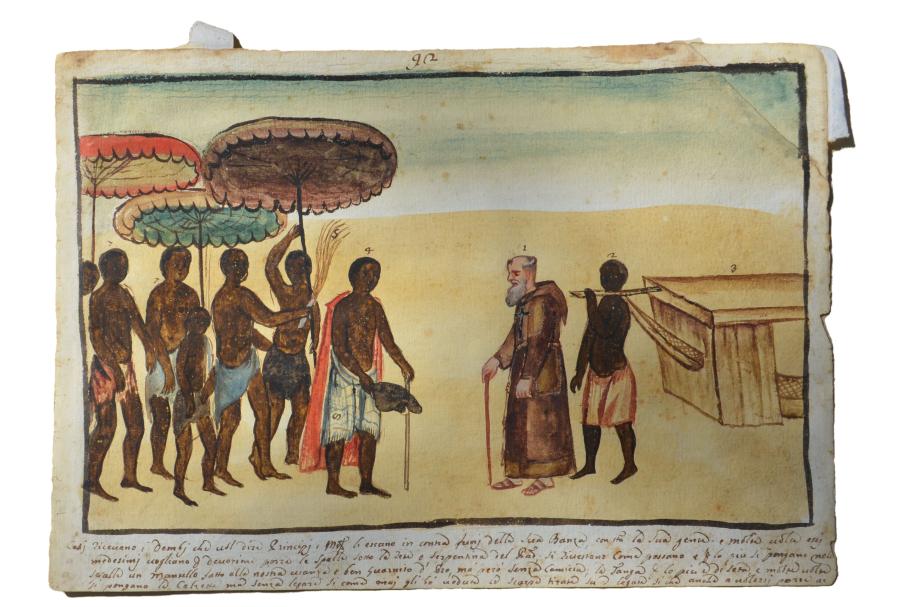PW092: In this manner the Dembi, which means Princes, receive the Missionaries
Cosi ricevano i Dembi1 che vol dire Principi i Missi l’escano in contra fuori della sua Banza2 con t[u]tta la sua gente e molte volte essi medesimi vogliano p[er] devozione porze le Spalle sotto la rete o serpentina del Pade; si rivestano come possano e p[er] lo piu si pongono nelle spalle un mantello fatto alla nostra usanza e ben guarnito d’Oro, ma però senza camicia; la Tanga3 per lo piu e di seta e molte volte si pongano le Calzette ma senza legare si como mai gli hò veduto le scarpe tirate su e legate si che anche a volersi porre ar
Thus the Ndembo which means Princes receive the Missionaries they come out to meet them outside of their Banza with all of their people. and often they themselves want for devotion to put the net or serpentina of the Father on their shoulders; they dress as they can and at most they put on their shoulders a coat made in our fashion and well decorated with Gold but without a shirt; their Tanga what is more is made of silk and often they put on stockings but without tying them and never as well have I seen them with shoes pulled up and tied but only for posturing

Add new comment